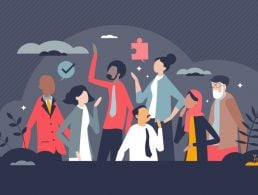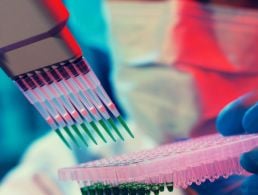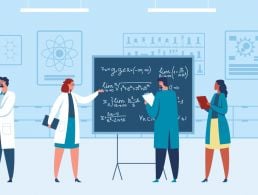Paul Strouts, global managing director of Hays Life Sciences, discusses the transformation that the industry has undergone in recent years.
The healthcare industry has changed. At the outpatient level, consultations with healthcare professionals are often replaced with sensors, apps and connected devices that monitor and give advice, while in secondary care, robots perform surgical operations once entrusted only to the most experienced medical practitioners.
The business model in life sciences has, historically, been based on selling products, where more was better. Value-based reimbursement, now prevalent in Europe and the US, turns this model on its head to one that pays for outcomes. To further this departure from the past, it cannot just be cloud operations, advanced analytics and digital algorithms that lead the charge – it relies on people and the deployment of new sets of technological skills.
Because everything has changed, so has the typical organisational infrastructure, including job roles, skill requirements and hiring habits. Here is what every hopeful life science candidate needs to know in today’s thoroughly modern world.
Companies are digitally committed
Bayer set out on its digital transformation journey back in 2014. The role of head of digital development emerged and dedicated digital implementation followed. This included the hiring of talent not normally associated with the pharma space, like leaders in digital and multichannel marketing and integrated customer experience.
Similarly, Biogen hired an executive vice-president of technology to lead the company’s commercial efforts to unlock insights from wearable and ingestible devices. These are just random examples, but this digitisation of company infrastructure is now happening across the board, creating new roles and opportunities for those with high technological aptitude, skills and experience.
The search for data-driven talent in life sciences is intensifying
Data is the name of the game, and talent that can turn this into meaningful innovation and commercial value will be more in-demand than ever. As the data collection environment shifts from the laboratory into patients’ lives, the skills required to process, analyse and plan are becoming more prized.
These include senior roles like the ones referred to above, as well as programmers, data managers, safety data specialists, data scientists and technical project managers. Finding such extraordinary talent can still be elusive for life science companies – particularly at the mid and senior management levels. They are faced with the question of training or hiring in new skillsets.
Who is going to get the job?
As more and more focus is placed on digitally mapping the patient journey, hirers will look to candidates such as clinicians, allied health professionals and those with experience in the health services, but also those from consumer companies with the practical experience to challenge existing models of care.
Those from industries already far down the line of digital transformation – for example, financial services and consumer electronics – may be a natural fit for companies both at the beginning of, and further down, their digitalisation journey.
Others will bring digital leverage in the form of artificial intelligence (AI) and robotics, where commercial interests are driving the future, towards machines and humans working together for greater efficiency.
Digital-first will win the day
Life science employees and talent coming into the industry need, above all, a ‘digital-first’ mentality and skillset, which must include everything from internal communications to the ‘meat and potatoes’ of their work. Digital fluency is the key to driving the new endgame of greater health for populations and greater value for the healthcare system, and those who can demonstrate this commitment will reap the rewards.
The place to start, if you haven’t already, is to assess your technical literacy skills – web design, data analysis and research, for example, will be far more important than biological knowledge in the long run. Then connect with others in the digital health community who can give you exposure and help you initiate your digital health career.
By Paul Strouts
Paul Strouts is the global managing director of Hays Life Sciences. A version of this article originally appeared on Hays Viewpoint.




